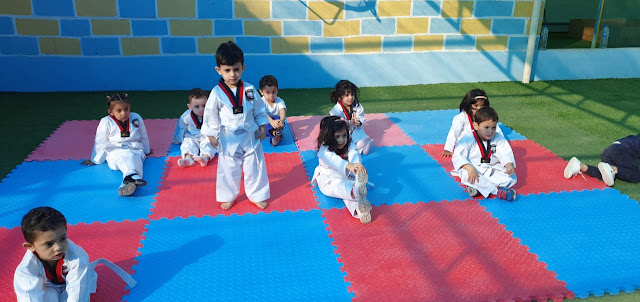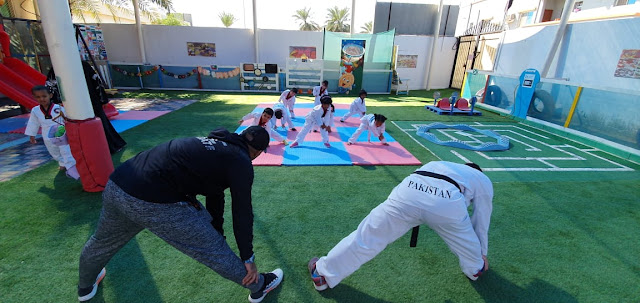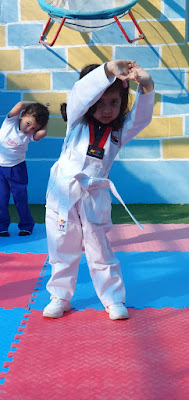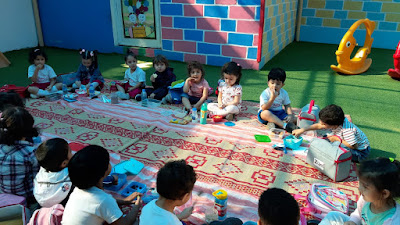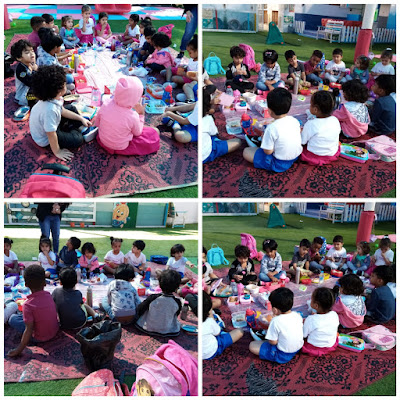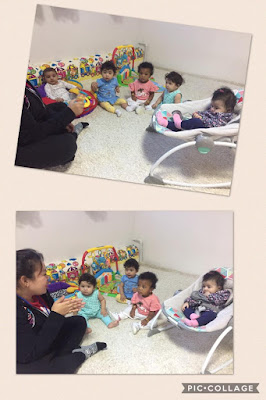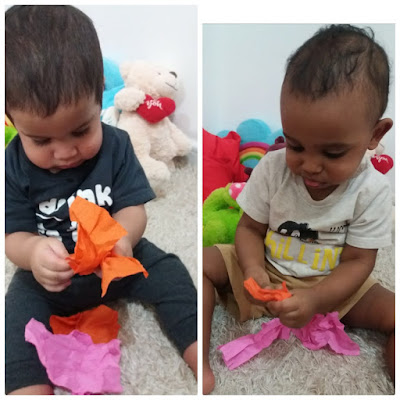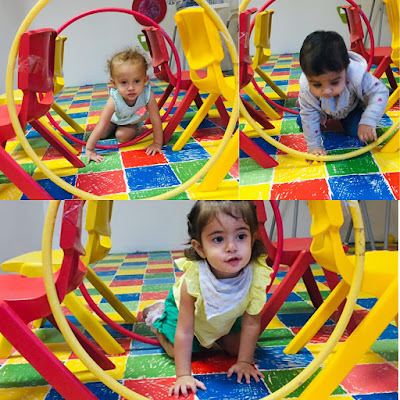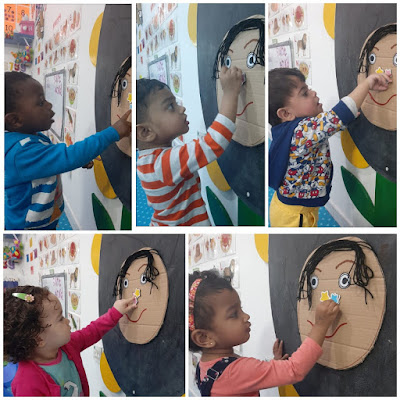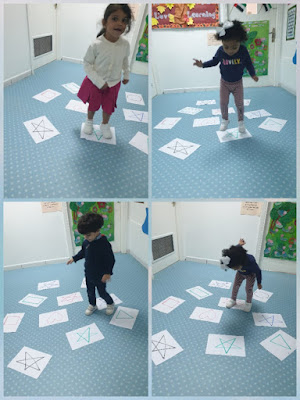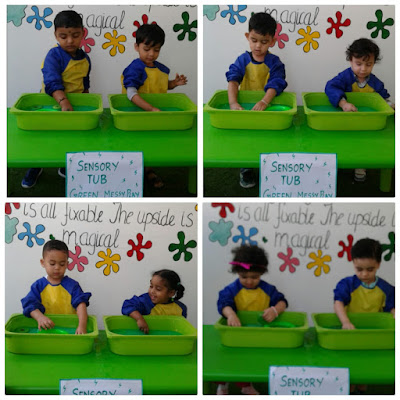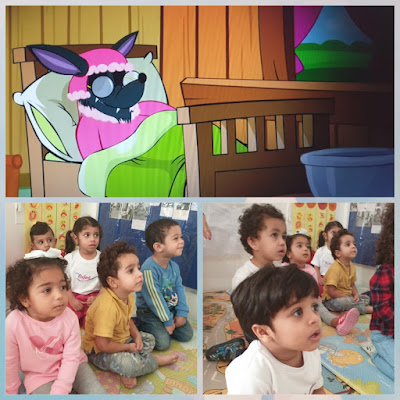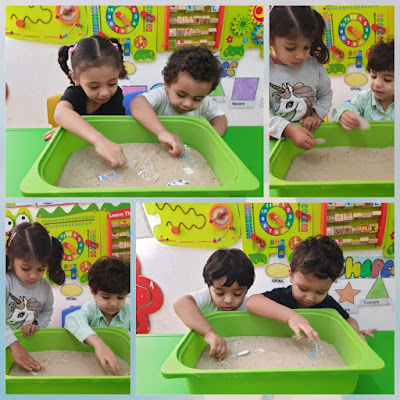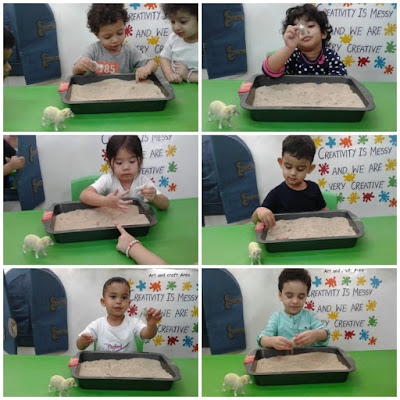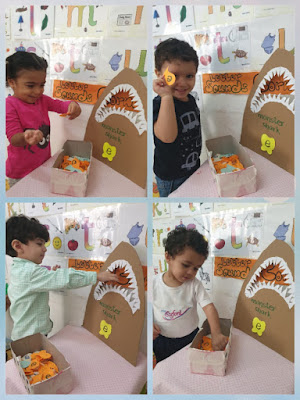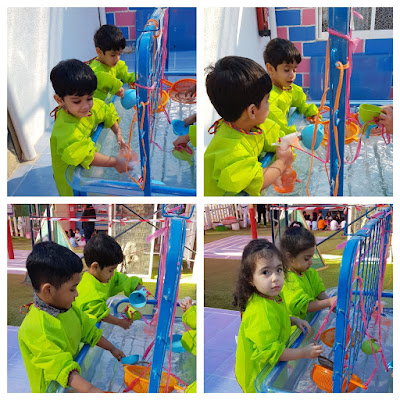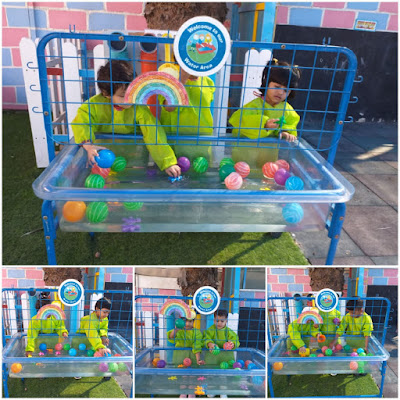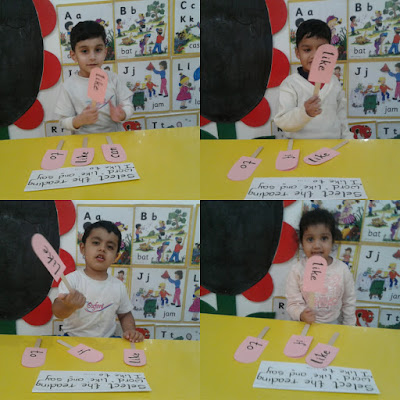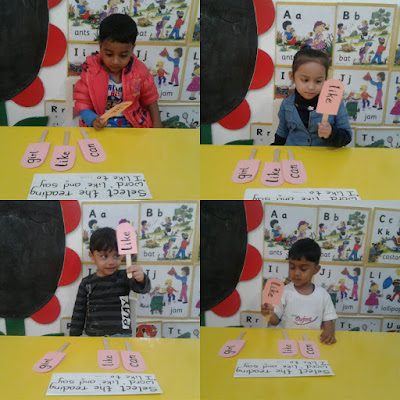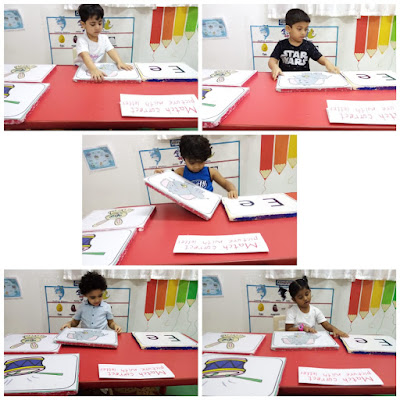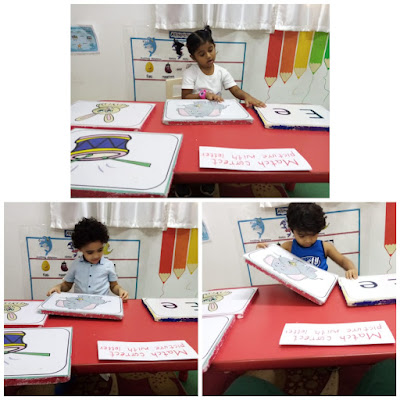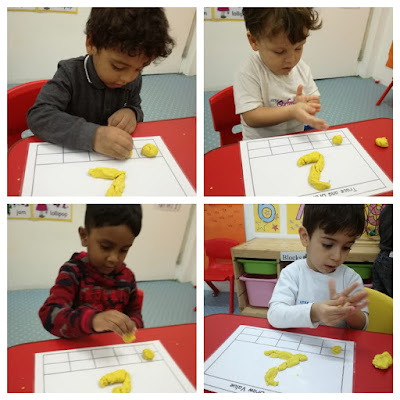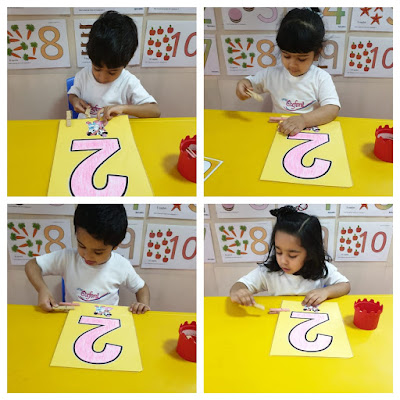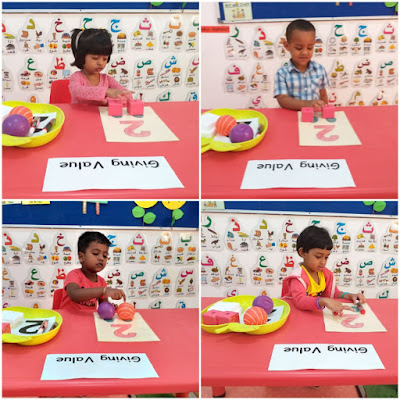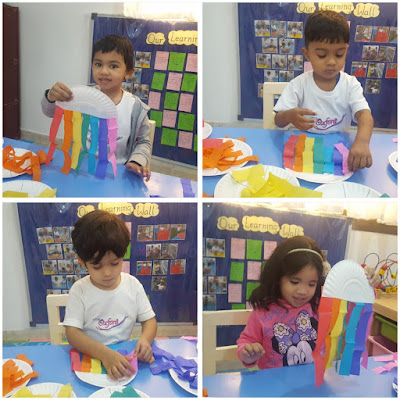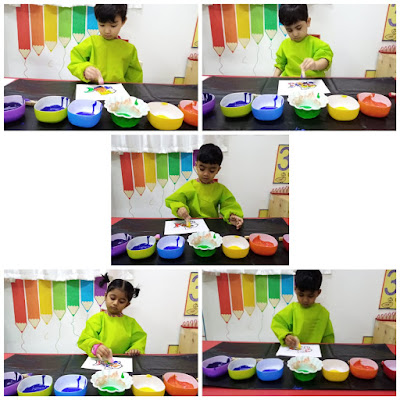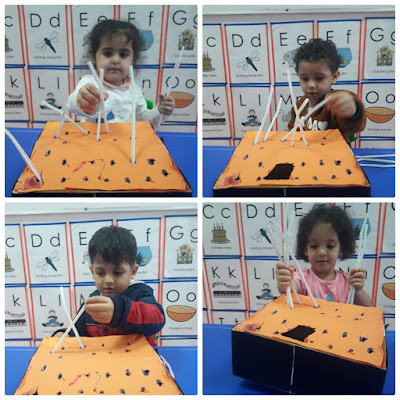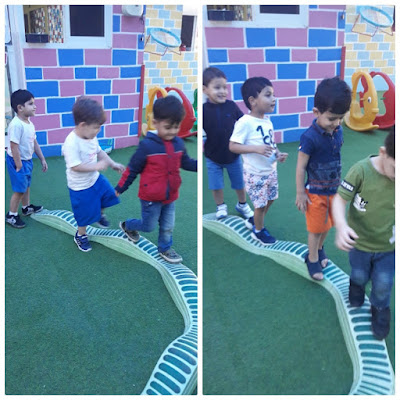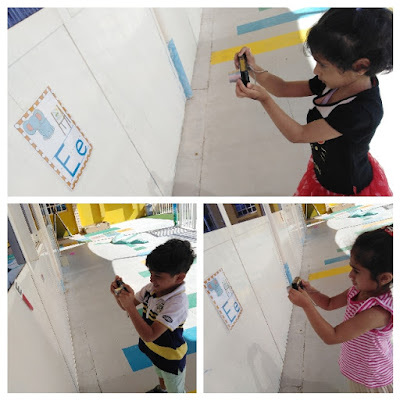Song of the Year
UAE National Anthem
Arabic Song of the Week
اربع فصول
Song of the Week
Babies
Baby Shark Dance
Song of the Week
Playgroup I
Head, Shoulders, Knees and Toes
Song of the Week
Playgroup II
What colour is it?
Song of the Week
Foundation Year
UAE National Anthem
Taekwon-do Sessions in Full Swing
Eating Out - Snack Time
We decided to take our kids out in the open to have their
snacks. Spending time outdoors, basking in nature, the pure
air invigorates kids and leaves them feeling rejuvenated.
There’s something great about fresh air and sunshine that
just puts kids in good mood and motivates them to do their
best. Term II, witnesses a number of field trips and through
eating out, we are also educating our kids about the right
conduct during field trips and training them for the same.
OUR BABIES
Your baby was born with about 300 bones. As she grows, many of
these will get harder, and some will fuse together. For example, the skull starts as three pieces of bone joined by cartilage, so that it can fit through the birth canal. This is why your baby's head has soft spots. But these pieces eventually join to make one solid bone.
By the time your baby reaches adulthood, she's likely to have just 206 bones in her body.
OUR PLAYGROUP I
Toddlers experience a language explosion. The typical 1-year-old only knows about 70 words. But by 18 months, they learn one new word every two waking hours! Even though they understand thousands of words, toddlers may not speak as many.
Language development isn’t necessarily linear. Some toddlers learn phrases before words; others will go weeks without new words, then have a sudden burst of new ones. Picky eating may be frustrating, but it’s perfectly normal. Just continue to introduce new foods and have patience as you serve up macaroni and cheese yet again.
OUR PLAYGROUP II
Tantrums are normal—there’s a reason for the phrase the “terrible twos”! Toddlers experience a lot of frustration, which often leads to a meltdown. If handled appropriately, most toddlers outgrow the behavior. Toddlers learn appropriate behavior by watching those around them. Keep in mind that your little one is watching you and will learn from what you do—even the things you wish they wouldn’t! The toddler years are an important time for building social skills. Most 2-year-olds engage in parallel play with other children and have trouble learning to share, but should start having friendships by age 3. They’re building fine motor skills. The earliest skills include scribbling and stacking blocks by about 15 months, using a spoon by age 2 and copying a circle by age 3. Toddlers need help identifying their emotions. Talk to your child about the emotions they seem to be feeling, like sadness or frustration, and explain what it means and how to adjust.
OUR FOUNDATION YEAR
They’re clumsy, but also able to do more than they could at 2 which isn’t always a good combination. I am clumsy too, but I realize it. They do not. They can do everything for themselves, and if you even attempt to help them, you run the risk of dealing with a 30- 45 minute tantrum. Choosing clothes with a 3 year old will typically result in a room full of clothes that were the wrong color, size, texture, or had too many tags, or possibly a stray thread. (This is why our 3 year olds typically leave the house in mismatched pajamas and clothes inappropriate for the weather). Foods should never under any circumstances touch on the plate they are served to 3 year olds. If foods touch, they are most likely inedible.
AFTERNOON KIDS CLUB
AL HAMRA NURSERY

